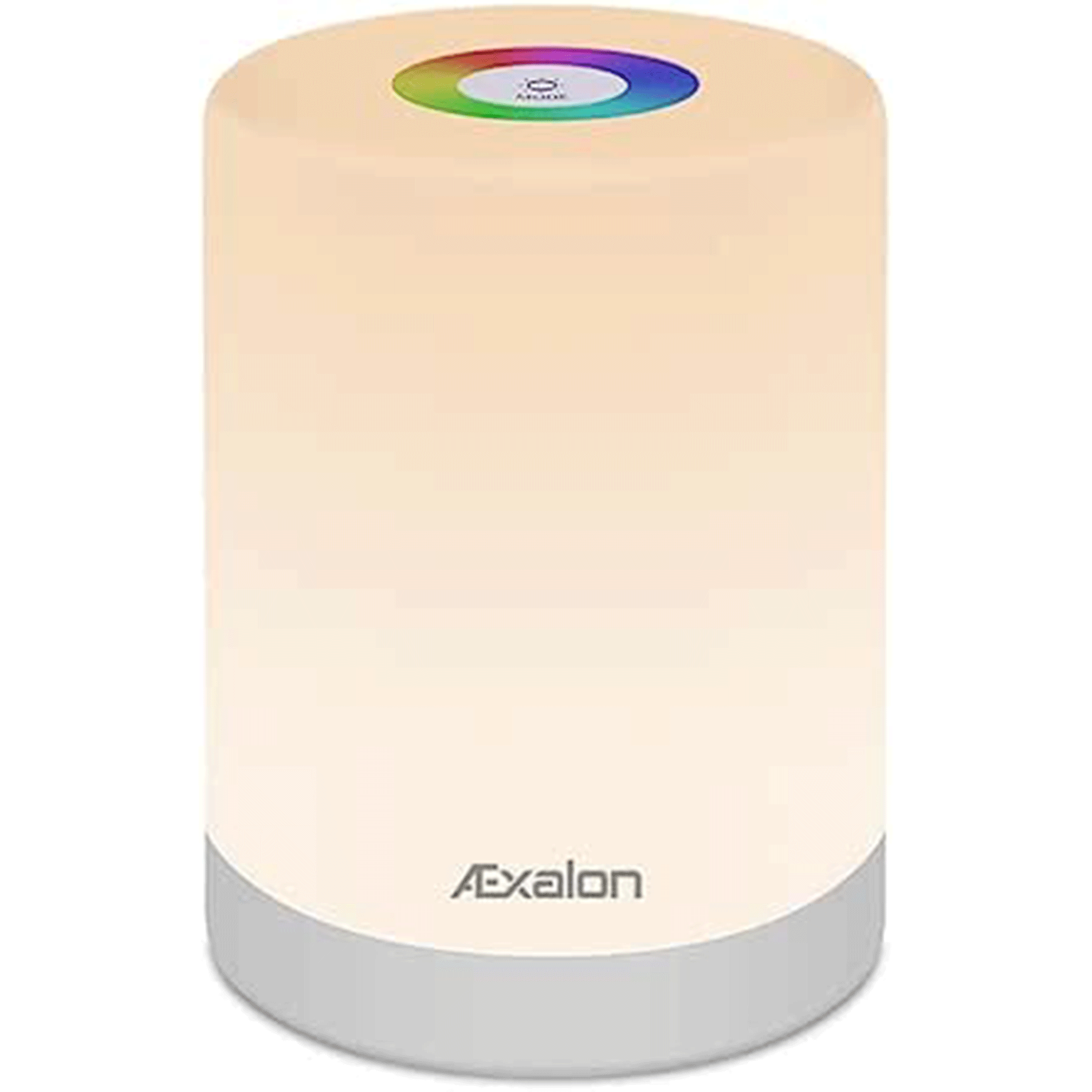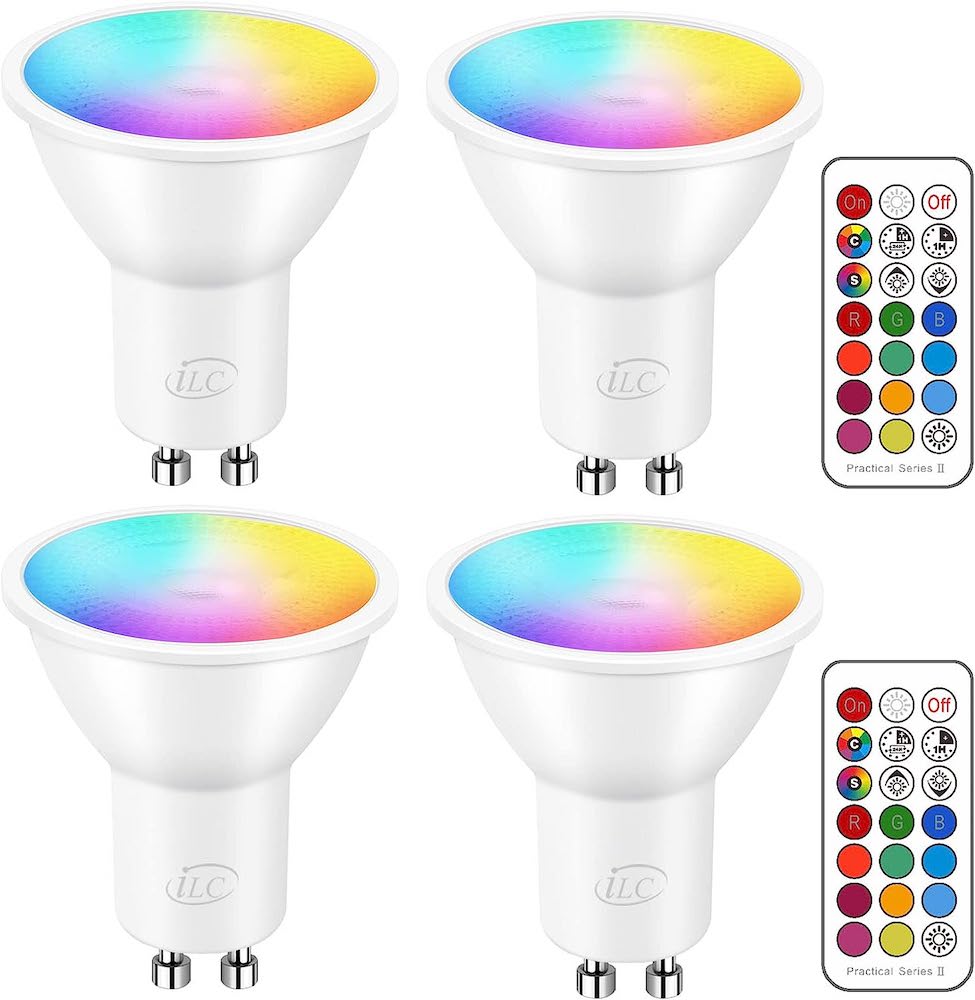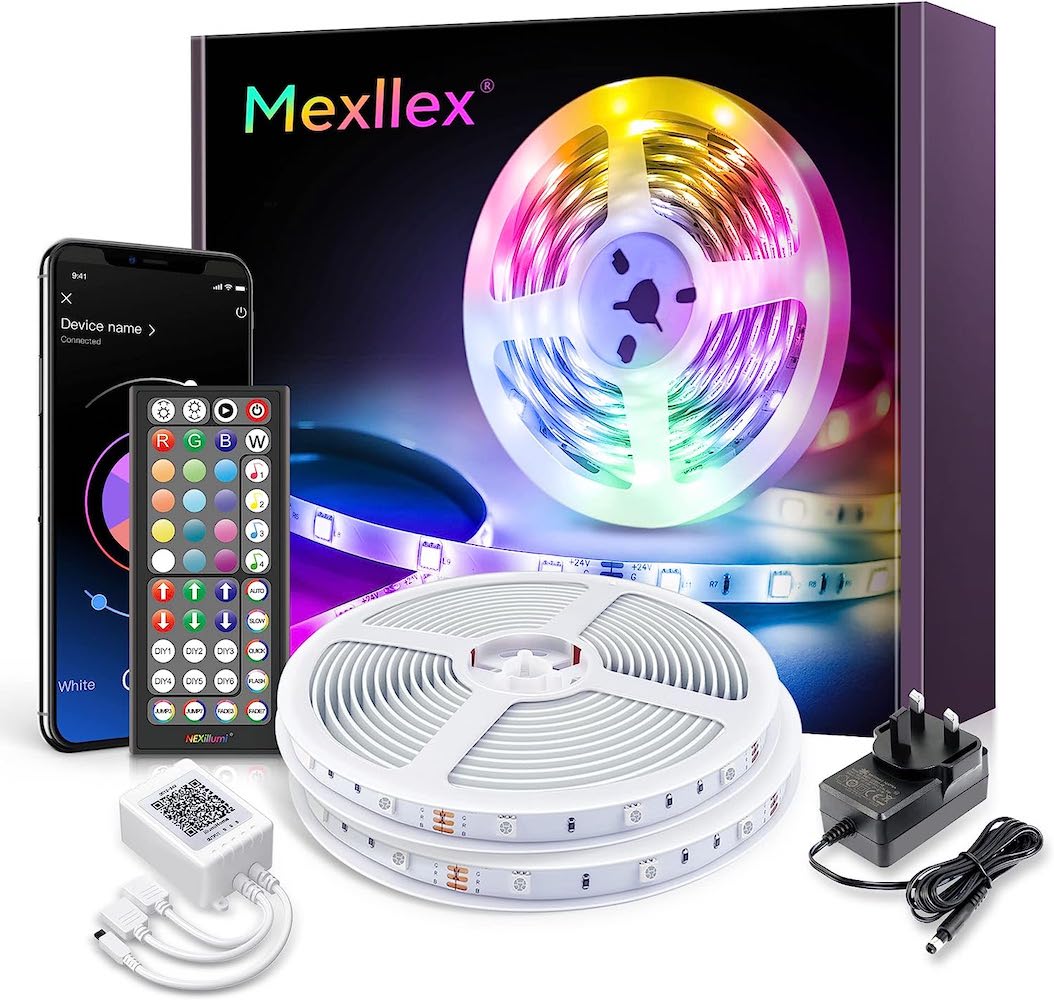What is the best LED colour light to sleep with? Experts reveal the best bulbs to improve your sleep
Buy these expert-recommended bulbs to sleep better tonight

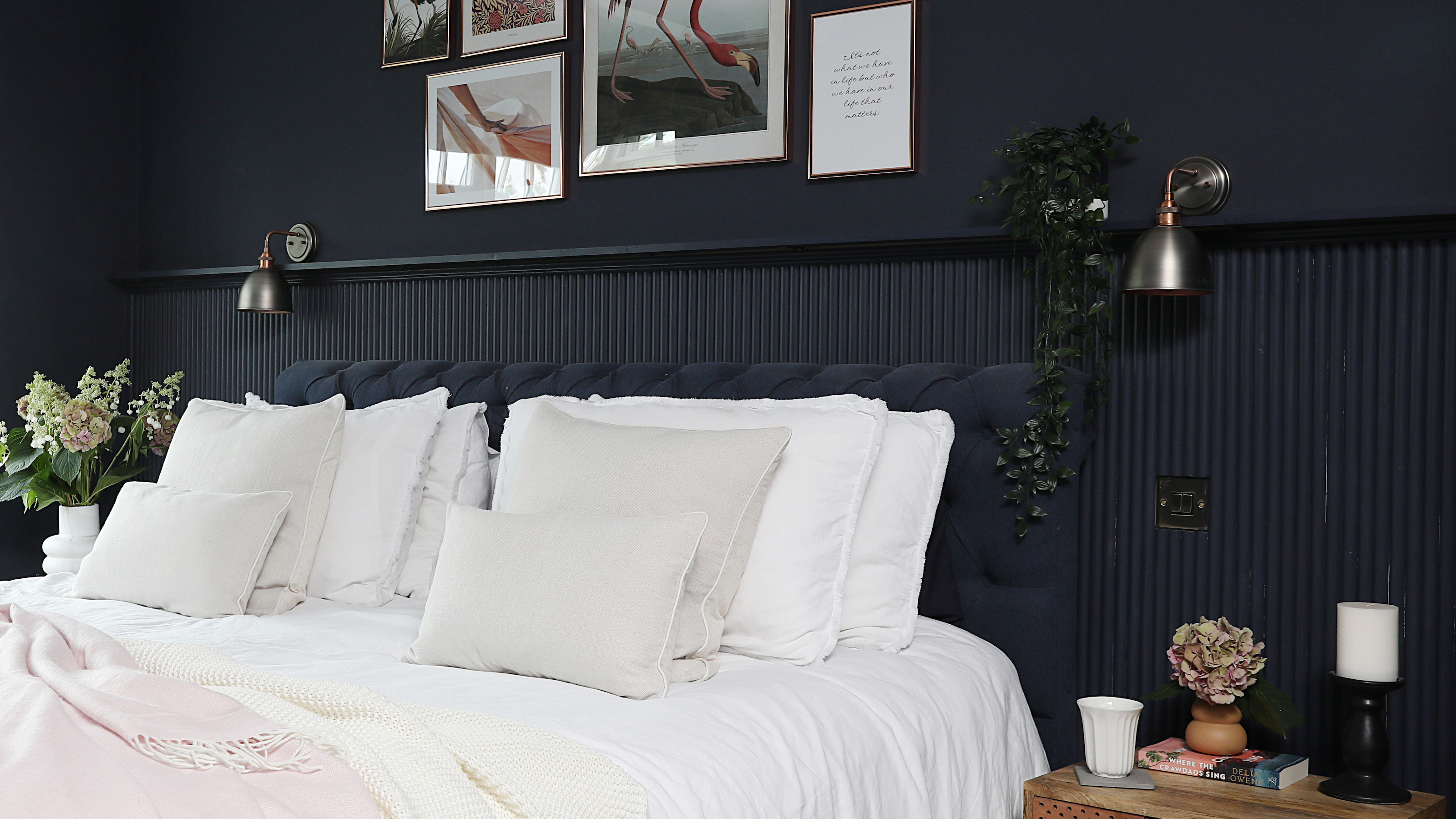

Sign up to our newsletter for style inspiration, real homes, project and garden advice and shopping know-how
You are now subscribed
Your newsletter sign-up was successful
Choosing the best LED light to sleep with might sound counterintuitive, but lighting can have a huge impact on sleeping better.
Lighting is an essential part of our bedroom decor ideas – the pendant that floods the room with light, a lamp by the bedside to read by, brighter bulbs by the dressing table to stop make-up mishaps. But our bedroom lighting ideas can do so much more – even helping us to get a more restful night's sleep, according to lighting professionals.
'The great thing about LEDs is that they can give off different tones, which can be beneficial in your bedroom especially,' says Robert Aitken, technical director at specialist lighting design firm, Wandsworth Electrical. 'Warm LED lighting can create a cosy, calming atmosphere, which can help you feel more at ease and ready your body for sleep.'
Switch on to how the colour of your lighting can help you sleep, with these tips from lighting professionals.
1. Pick LED lights that give off a warm glow
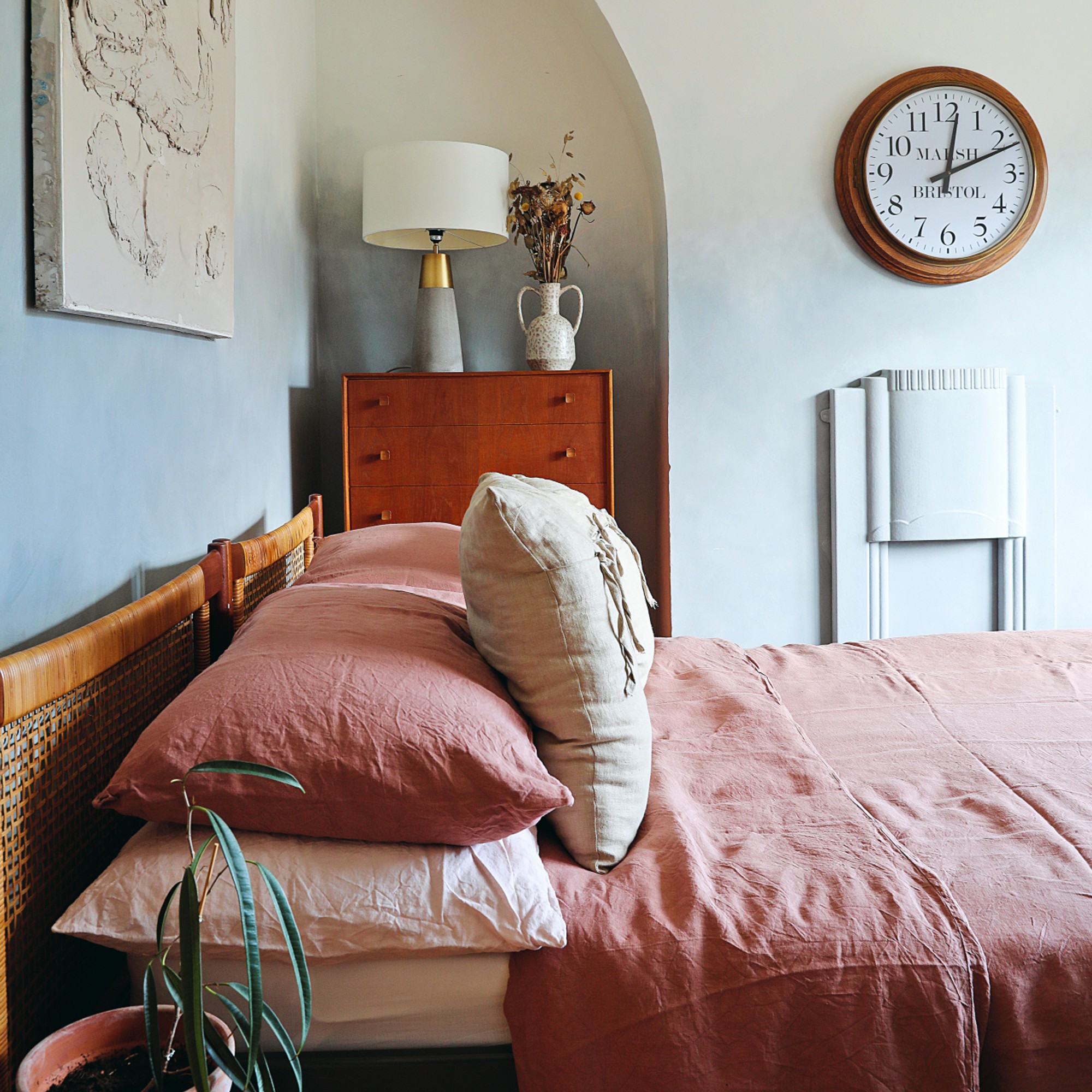
This isn't just about creating a romantic atmosphere. LED lights that have a warm, yellow-toned glow, as opposed to a brighter blue-toned light, have been proven to help your body shift into wind-down mode, ready for rest.
'Using dim orange- or yellow-toned lights at night won’t negatively impact your circadian rhythm, which regulates how alert or sleepy we feel throughout the day,' says says Robert Aitken from Wandsworth Electrical. 'Blue and white-toned light, however, is known to have a negative impact on our ability to fall and stay asleep.'
The LED bulb packaging will describe the light it gives off – warm or cool white being the most common. You can also check for 'Kelvins', measurements on a scale that grades the colour of light.
Sign up to our newsletter for style inspiration, real homes, project and garden advice and shopping know-how
'Typically the lower end of the Kelvin scale suits sleep, around the 2700K mark, as it replicates the warmer, dimmer ending of the natural day (sunset) and works with the body's natural cycles,' explains Ajay Vasdev, founder of lighting designers and consultants, Asco Lights.
2. Want more colour? Choose a pink LED light
LED lights don't just come in shades of white. You can buy colour-changing bulbs that allow you to set the lighting to help you wake-up in the morning or encourage you to feel sleepy at night – a great hack if you want to become a morning person or you want a bedroom suited for a night owl.
'Red and pink light can help to boost the sleep hormone melatonin by simulating the wavelength of the setting sun, while exposure to green and blue lights has a negative effect on our ability to sleep because it can prevent melatonin production,' says Robert Aitken from Wandsworth Electrical. 'Therefore, we recommend warmer lights when it comes to sleep. You could even try coloured bulbs to introduce some red- and pink-toned light into your space.'
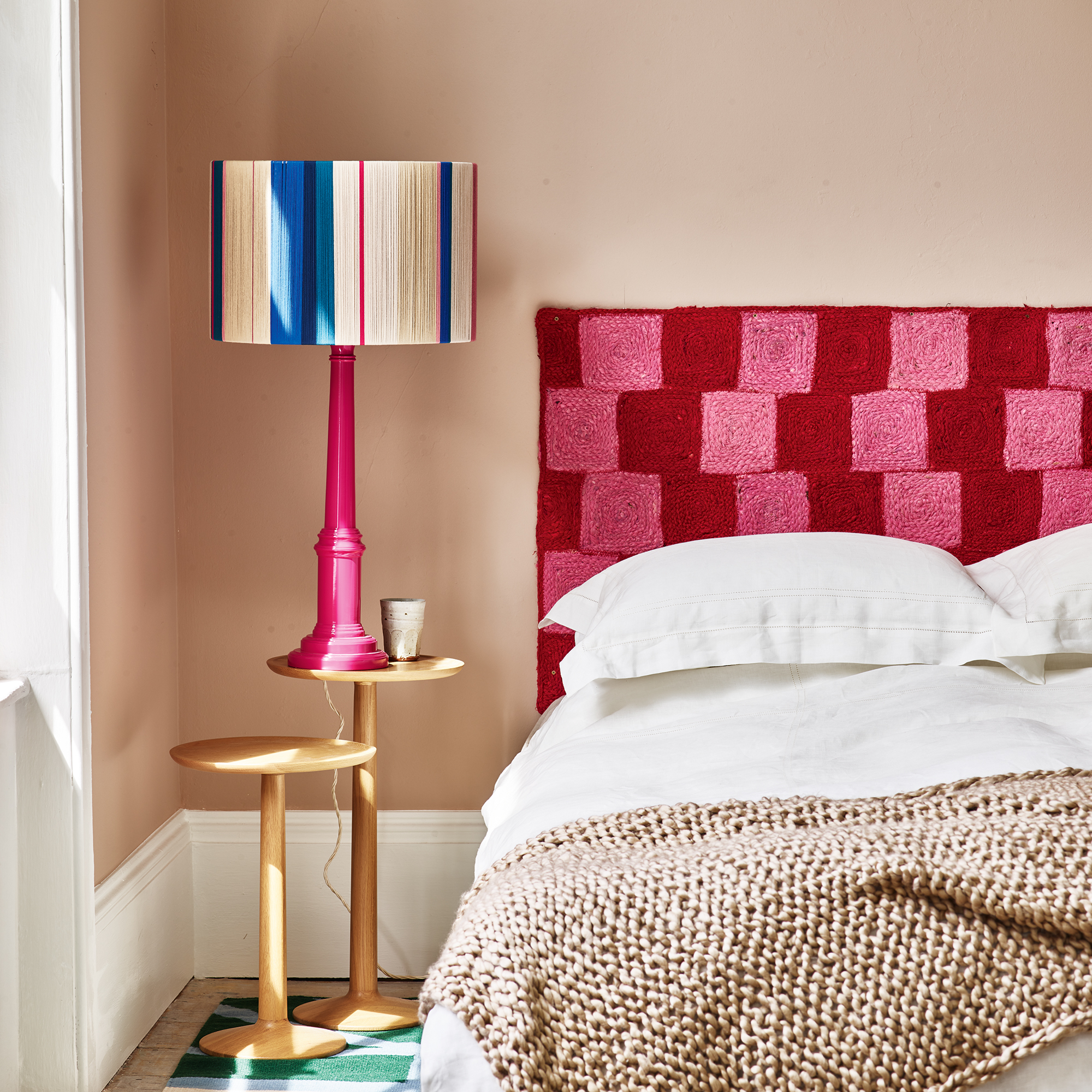
'The hot topic in lighting is how to replicate the human circadian rhythm – our natural 24-hour body clock cycle,' agrees Ajay Vasdev from Asco Lights. 'There is an area in the brain called the hypothalamus, which via signals from the eyes (light) tells the body whether it is day or night. In turn, this controls the amount of melatonin that is released – more when it's dark for sleepiness, and less with light for alertness.'
We can hack our hypothalamus by using LED lights to make it appear that it's daylight or nighttime in our bedroom – and so help us get into a natural sleep rhythm.
'By exposing your eyes to light similar to sunlight, light therapy helps realign your circadian rhythm with the patterns of the sun. As a result, you feel more tired in the evening, as sunlight lowers, and more awake in the morning when the sun rises,' Ajay says.
3. Choose LED colour-changing bulbs for the ultimate sleep hack
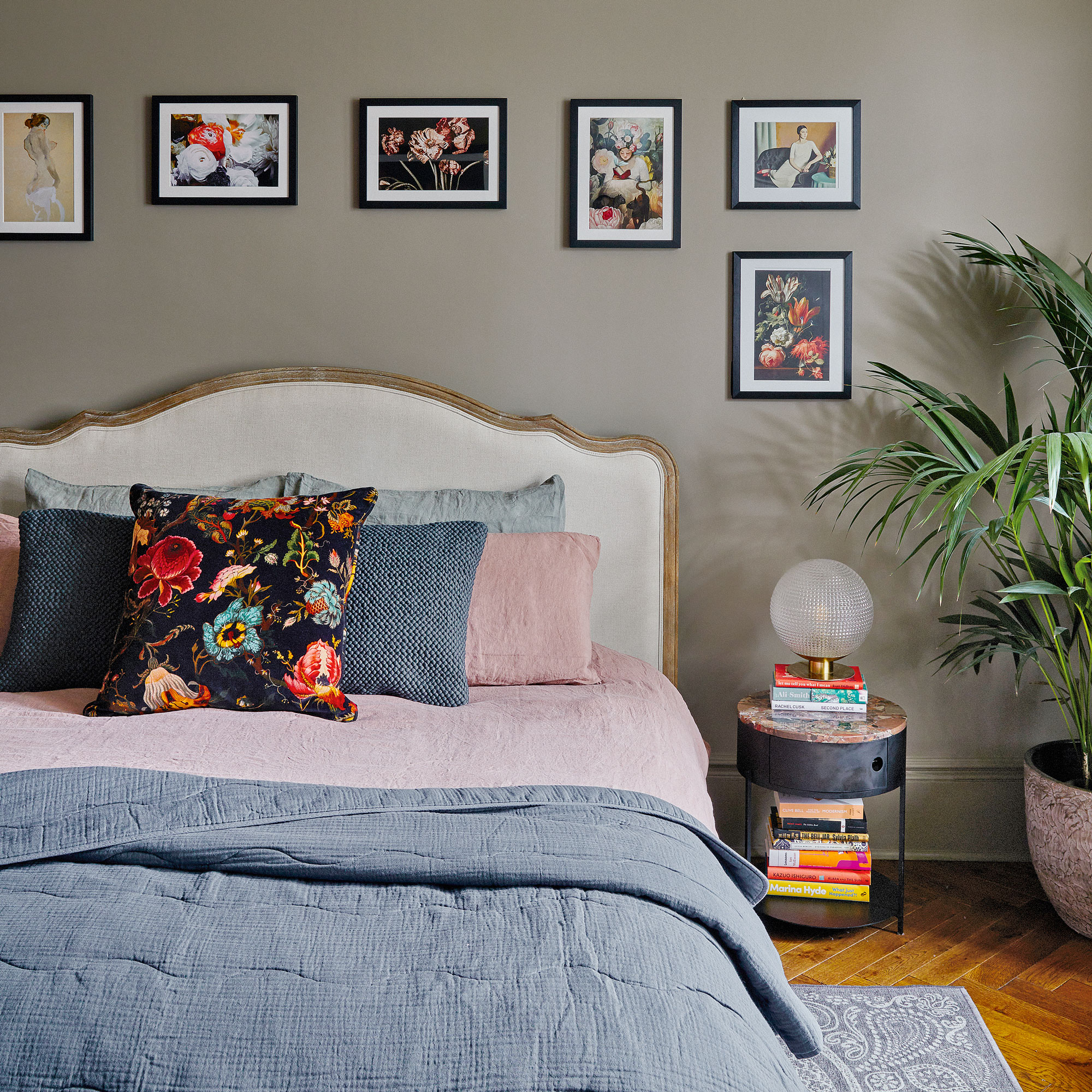
Yes, colour-changing lightbulbs or LED lighting strips could be the sleep hack to take your calm bedroom ideas from zen to zzzzz.
'We need exposure to natural daylight every day in order to sleep well at night, but using colour-changing LEDs in the evening can help to ready our body for sleep. Slowly changing your light from a white tone to an orange or red one as the evening progresses will help to mimic traditional light patterns and help you prepare for a good night’s sleep,' says Robert Aiken.
You could fit these anywhere in the home – hello, kitchen disco – but if you retreat to your bedroom for a pre-bedtime wind-down routine, why not incorporate colour-changing LED bulbs into your sleep space set-up, with the change in light colour signalling to your body that it's time get under the covers and sleep?
'If you struggle to fall asleep in complete darkness and prefer the comfort of a dim light, you’ll benefit from a warm-toned light set on a timer,' suggests Robert Aitken. 'We recommend setting your dim-to-warm lights on a timer so it turns off while you’re asleep – the deepest type of REM sleep that our bodies and brains need to function at their best can only occur in absolute darkness, without the interference of artificial light.'
And… LED lights in the bedroom are safer and can save you money
If you need any more convincing that LED lights in the bedroom are a good thing, here's a fact to give you sweet dreams – they can save you money.
'LED lights consume less electricity compared to traditional incandescent bulbs, resulting in cost savings. They also have a longer lifespan, which means less frequent bulb replacements. LED lights also produce less heat, making them safer to use, especially in enclosed spaces like bedrooms,' explains Ajay Vasdev from Asco Lights.
Since legislation in 2018 banned incandescent bulbs, followed by rules in 2021 phasing out halogen bulbs, the majority of lighting in the UK is LED. Switching from halogen lights to LEDs can save between £2,000 and £3,000 over the lifetime of the bulbs, according to Government figures.
So, if you want to save money and get a better night's sleep, now is the time to invest in warm-toned LED lights for your bedroom. And if they're colour-changing, even better!

Andrea began her journalism career at Ideal Home and is currently Editor of our sister title, Country Homes & Interiors, which celebrates modern country style. Andrea is passionate about colour and how it can transform both our homes and our sense of wellbeing, and has completed The Power of Colour course with the prestigious KLC School of Design. Andrea's career spans interiors magazines, women's lifestyle titles and newspapers. After her first job at Ideal Home, she moved on to women's magazines, Options and Frank. From there it was on to the launch of Red magazine, where she stayed for 10 years and became Assistant Editor. She then shifted into freelancing, and spent 14 years writing for everyone from The Telegraph to The Sunday Times, Livingetc, Stylist and Woman & Home. She was then offered the job as Editor of Country Homes & Interiors, and now combines that role with writing for idealhome.co.uk.
